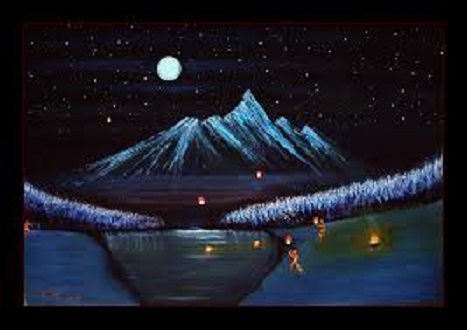Inquiring Deeply About Emptiness

INQUIRING DEEPLY NEWSLETTER
November 2018
Inquiring Deeply About Emptiness
There is a not uncommon experience people allude to as “emptiness”, meaning a deep sadness, yearning, or inner sense of something missing. It often connects to a felt sense of deep deficiency or unworthiness. This psychological emptiness is quite different in meaning from the Buddhist concept of the same name, which refers to the reality that things do not exist in the way we suppose that they do; that life is empty of anything which is inherently substantial or permanent enough for us to hold onto.
A good way to think about the psychological experience of emptiness is in terms of parts of us which have been lost from awareness. What has been lost from consciousness leaves a vacancy, a place which feels empty. Sometimes emptiness is a hole in our lives which comes from the loss of someone or something. It may arise in relation to something we want very badly but despair of ever finding/having. Psychic holes in the mind may also come about as a result of traumatic experience or something else barred from memory.
We can begin to explore emptiness by inquiring into the holes we find in our own lives. What is missing? In what way(s) do we feel insufficient? What emotions do we not want to feel? What in the balance of mind, body, and heart gets too little of our attention?
We can also explore emptiness by paying attention to what we do to ‘fill’ the holes we feel within: our addictive attachments to substances, activities, and people. Ironically, our improvised ‘solutions’ to pain most often result in new, worse problems! By exploring the strategies we use to block the feeling of what is painful, we can deepen our awareness of the underlying feelings.
When we turn our attention to exploring empty places within, often we may find memories of hurt feelings and conflicts that block our natural ability to connect to others. Our most habitual and powerful feelings and thoughts define the core of who we think we are. When we are caught up in a sense of being unworthy, the universal sense that ‘something is wrong’ turns into the feeling that ‘something is wrong with me’. This felt sense keeps us on the run, driven by desperate efforts to get away from these bad feelings.
In a different vein, the experience of emptiness can sometimes be illuminated by contrasting it with its psychological opposite, aliveness. We can inquire about the experiences in which we have felt most whole and complete, most authentic, most at peace with ourselves and with our world. What has blocked these channels of vitality and aliveness?
In my view, our empty places, our ‘holes’, can ultimately only be filled by connection: both connection with others and better connection to ourselves. Healing relationships (including psychotherapy) help us through deep listening both to what we say and what we don’t say (and may never even have thought!). Deep empathic listening connects us heart-to-heart and cultivates our ability to extend compassion and tenderness towards what is wounded within us.
Mindful awareness of the experience of emptiness is a useful place to begin on the path of healing. If we have the inclination and/or interest, we may also find it useful at some point to contemplate the nature of emptiness itself. In a philosophical/spiritual sense, emptiness is the Everything/Nothing from which all manifestation arises. From this perspective, paradoxically, emptiness is a vast reservoir of unrealized potential.
In the words of the Taoist sage Lao Tzu, it is the emptiness within the cup that makes it useful.
Picture Credit: Farshad Sanaee
![]()
